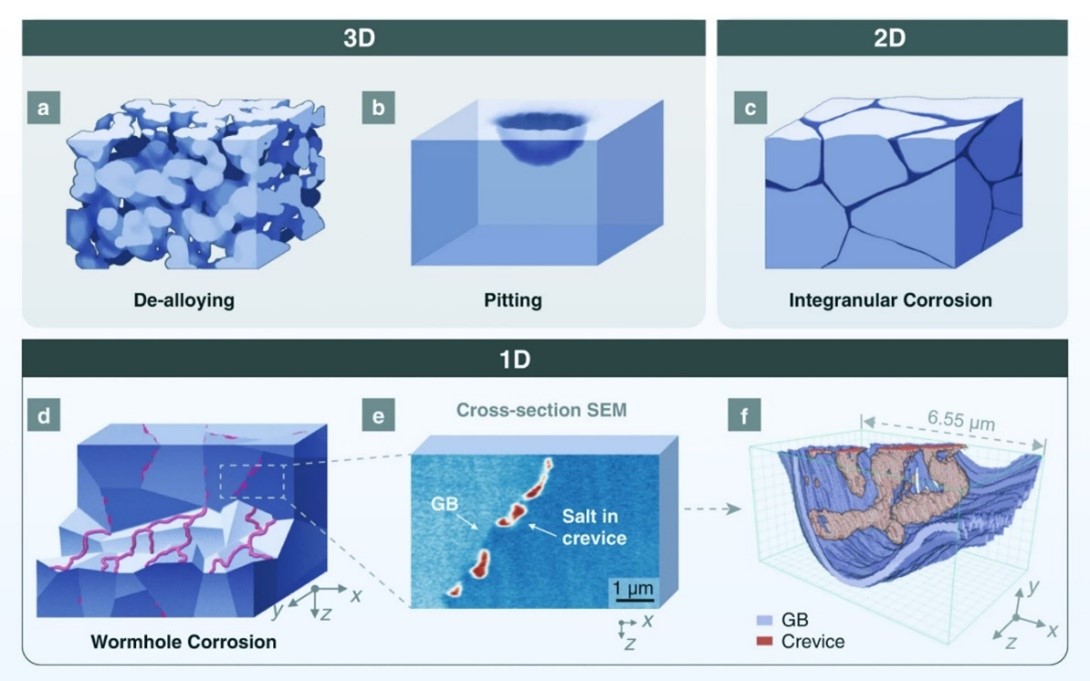PREVIOUS
1D Wormhole Corrosion
March 4 , 2023
1027 days
815
0
- Scientists have recently discovered a new form of corrosion known as the 1D wormhole corrosion.
- The 1D wormhole corrosion is a highly localized form of penetrating corrosion that occurs in a nickel-chromium alloy when exposed to molten fluoride salt.
- This type of corrosion leads to the development of a percolating network of tunnels along grain boundaries.
- These tunnels are filled with molten salt and leave voids along the grain boundaries.
- It has important implications for the understanding of material degradation mechanisms in molten salt environments.
- Molten salts are a key candidate for coolants in next-generation nuclear power plants.
- The use of molten salts as coolants is particularly attractive because they have a high thermal conductivity and a high boiling point.
- This makes them ideal for transferring heat away from the reactor core and for generating electricity.

Leave a Reply
Your Comment is awaiting moderation.


